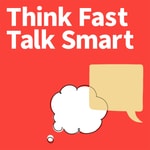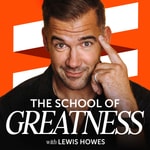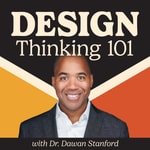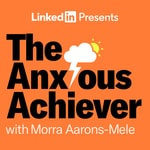Psych Mic – Détails, épisodes et analyse
Détails du podcast
Informations techniques et générales issues du flux RSS du podcast.
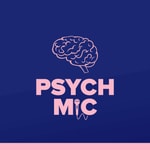
Psych Mic
Maya Metser
Fréquence : 1 épisode/8j. Total Éps: 62

Classements récents
Dernières positions dans les classements Apple Podcasts et Spotify.
Apple Podcasts
🇺🇸 États-Unis - socialSciences
11/06/2025#93🇺🇸 États-Unis - socialSciences
03/06/2025#98🇺🇸 États-Unis - socialSciences
09/04/2025#89🇬🇧 Grande Bretagne - socialSciences
16/02/2025#96🇬🇧 Grande Bretagne - socialSciences
15/02/2025#74🇬🇧 Grande Bretagne - socialSciences
14/02/2025#52🇬🇧 Grande Bretagne - socialSciences
07/02/2025#79
Spotify
Aucun classement récent disponible
Liens partagés entre épisodes et podcasts
Liens présents dans les descriptions d'épisodes et autres podcasts les utilisant également.
See all- https://www.wendysuzuki.com/
60 partages
- http://www.psychmic.com/
55 partages
- https://jillstoddard.com/
43 partages
Qualité et score du flux RSS
Évaluation technique de la qualité et de la structure du flux RSS.
See allScore global : 78%
Historique des publications
Répartition mensuelle des publications d'épisodes au fil des années.
Learning experientially | Applied behavioral science with Aline Holzwarth, MBA
Saison 1 · Épisode 61
jeudi 12 mai 2022 • Durée 01:00:30
Aline Holzwarth, MBA, is an applied behavioral scientist specializing in digital health research and scientifically informed product design. She is currently the head of behavioral science at Pattern Health and Principal at Dan Ariely's Center for Advanced Hindsight. She writes, "my training in psychology and business, and my experience in research and healthcare, have given her the kind of interdisciplinary lens that helps me appreciate the complexity of decision-making in the real world, particularly when it comes to the thorny domain of health. I am passionate about sharing behavioral insights with anyone who'll listen." See her website here.
Resources:
During this live interview (want to attend future ones? Sign up here), we cover:
- What is behavioral science?
- What is the “applied” piece?
- The value of dabbling
- Why didn’t you get a PhD?
- Why did you get an MBA?
- If you lack experience in behavioral science: how do you start acquiring relevant experiences?
- What kinds of research experiences are applicable to behavioral science roles?
- When did you own the title of behavioral scientist?
- Examples of behavioral science in digital health
- The future of behavioral science
- The paradox that ALL (or at least most) jobs require experience
- Entry-level job titles in behavioral science
- Where to network with behavioral scientists
- How do priorities of industry (e.g., profit, efficiency) impact your work?
- Advice for switching fields
- What piece of advice would you give your undergrad self?
- What is one skill, quality, or general factor that has served you no matter where you went in life?
Visit psychmic.com to sign up for the newsletter, where you'll get career tips, grad school resources, and job opportunities straight to your inbox! Follow @psych_mic on Instagram to submit questions for speakers and stay in the loop.
Music by: Adam Fine
Access Psychology Foundation: Increasing access to psychology for underrepresented communities with Dr. Alec Miller and Damian Travier
Saison 1 · Épisode 60
jeudi 5 mai 2022 • Durée 01:01:55
Access Psychology Foundation is a nonprofit that works to increase inclusion, equity, and diversity in the field of mental health by providing historically underrepresented communities with access to evidence-based prevention and treatment, and by training the next generation of racially diverse mental health providers.
APF offers scholarships and grants to high school students, college students, graduate students, licensed professionals, schools, and organizations from historically underrepresented communities to help them:
- gain exposure to the field of evidence-based clinical psychology
- access high quality training and consultation in evidence-based treatments, and
- access high quality training in working with clients of diverse backgrounds.
APF also offers scholarships and grants to people from historically underrepresented populations so they can obtain quality, evidence-based mental health treatment. Evidence-based treatments are those subjected to rigorous research trials demonstrating their effectiveness.
This episode is a conversation with APF co-founder, Alec Miller, PsyD, and APF Executive Director, Damian Travier.
TO FIND OUT MORE:
- The APF website is still under construction, but to find out more information about the opportunities discussed, you can reach out to Damian Travier at dtravier@access-psychology.com and mention that Psych Mic sent you!
- Listen to the Psych Mic interview with Dr. Alec Miller to learn about his career path in clinical psychology here.
We cover:
- how APF was founded
- why this nonprofit is so needed
- the nature of the mental health crisis in communities of color
- how APF is working to address the racial gap in mental health treatment and training
- and how you can get involved
Visit psychmic.com to sign up for the newsletter, where you'll get career tips, grad school resources, and job opportunities straight to your inbox! Follow @psych_mic on Instagram to submit questions for speakers and stay in the loop.
Music by: Adam Fine
How research can drive innovation | Social neuroscience with Dr. Rose Perry
Saison 1 · Épisode 51
jeudi 24 février 2022 • Durée 01:25:27
Rose Perry, PhD, is an applied research scientist with a doctorate in neuroscience & physiology from New York University. Her research has examined how social connections can “get under the skin” to buffer individuals from the long term, negative effects of stress and trauma. In April 2020, understanding the unique social challenges that the COVID-19 pandemic was raising, Rose established Social Creatures, with the mission of ensuring that any individual can socially connect with others, no matter their circumstances.
Rose's email: rose@thesocialcreatures.org
Topics we cover:
- Why are you fascinated by psychology and neuroscience?
- How did you figure out that you loved the research part of psychology?
- Why did you like rodent research more than human research as an undergrad?
- Why were you so intrigued by social support & connection?
- How have your personal experiences shaped your research?
- What is community co-design? How does your nonprofit use it?
- Why did you choose to do your PhD in neuroscience in a medical school?
- What was your rat research on in graduate school?
- How has your rodent research informed your human research and applied work?
- What are major differences in skills that are required to do rodent and human research?
- Research is not a monolith
- Advice for prospective and current PhD students: social support, finding a mentor, and gaining skills that match future goals.
- How did pressure to pursue an academic path influence what you did after graduate school?
- Once you decided academia wasn’t for you, how did you decide what to do after?
- How did the idea for Social Creatures come about?
- What does it mean that “social connections can get under the skin”?
- How does Social Creatures reach its goals to facilitate social connections for everyone?
- Want to volunteer with Social Creatures?
- Advice for researchers who want to apply their knowledge in industry
Visit psychmic.com to sign up for the newsletter, where you'll get career tips, grad school resources, and job opportunities straight to your inbox! Follow @psych_mic on Instagram to submit questions for speakers and stay in the loop.
Music by: Adam Fine
Using psychology to better our classrooms | with Dr. Erin O'Connor
Saison 1 · Épisode 50
jeudi 17 février 2022 • Durée 01:14:11
Erin O'Connor, Ed.D, is the Director of New York University's Early Childhood Education Program and a tenured professor. She holds a Doctorate (Ed.D) in Human Development and Psychology from the Harvard Graduate School of Education, a Master's in Teaching from Fordham University, and a Master's in School Psychology from Columbia University. Erin teaches human development and education classes to pre- and in-service teachers in New York City schools. She also co-directs a community partnership working with families and caregivers.
In addition, Erin leads a research program examining relationships with mothers and teachers and the impacts of these relationships on children's development in early and middle childhood. She also conducts randomized control trials of relationship-building interventions on the language and social development of pre-kindergarten children from low-income families and neighborhoods.
Erin has published in educational and psychology journals including the American Educational Research Journal, Journal of Educational Psychology, and Journal of Applied Psychology. Her work is supported by grants from several institutions including the Institute for Education Sciences. She is a member of the American Educational Research Association, American Psychological Association, and the Society for Research in Child Development.
She is also the founder of Scientific Mommy, which works to make research about child development more accessible.
In this episode, we cover:
- Why did you go the teaching route & get a master's after undergrad?
- What did you learn through being a teacher? And why did you not want to continue teaching?
- Why did you want a school psychology master's?
- Why did you move away from clinical work?
- What went into your decision to get a doctorate? Why an EdD over a PhD? Why in human development?
- The ups and downs of grad school
- Starting a family in grad school
- Pros and cons of an academic career & tenure track
- How to assess your fit with a faculty advisor before grad school
- Issues with the education system & our classrooms: from a psychologist's perspective
- Scientific Mommy
- What it means to be a program director
- How has your research changed how you parent?
- What is your favorite part of your job?
- What is one skill, quality, or general factor that has served you no matter where you went in life?
Resources mentioned:
- Alison Gopnik (distinguished developmental psychologist)
- Emily Oster (distinguished economist focusing on parenting & pregnancy)
- Parenting Understood podcast with Erin O'Connor and Michelle Tangeman
Visit psychmic.com to sign up for the newsletter, where you'll get career tips, grad school resources, and job opportunities straight to your inbox! Follow @psych_mic on Instagram to submit questions for speakers and stay in the loop.
Music by: Adam Fine
Empowering citizens through legal advocacy | with Ami Gandhi, JD
Saison 1 · Épisode 49
jeudi 10 février 2022 • Durée 59:57
Ami Gandhi, JD, is a Senior Counsel at the Chicago Lawyer's Committee for Civil Rights where she works to reduce barriers to voting and improve civic participation, especially in communities of color and low-income communities. Ami’s experience includes leading statewide voter protection for the 2016 and 2020 elections, partnering with community members in the criminal legal system to expand voter access, advocating for communities of color during Illinois redistricting, and advising local election authorities as they implemented the first Hindi ballots in the country. Her experience includes litigating cases in Illinois and Indiana and partnering with communities to write and pass legislation. She previously worked as the Executive Director of South Asian American Policy & Research Institute (SAAPRI), as the Legal Director of Asian Americans Advancing Justice Chicago, and as a commercial litigation attorney at Freeborn & Peters LLP. She also serves on the Planning Committee for DePaul University’s Institute for Restorative Academic and Civic Engagement, which focuses on currently and formerly incarcerated students, as well as the Executive Advisory Board for the Immigrant and Refugee-Led Capacity Development Network of Illinois.
Ami participates in the Law, Politics, and Civic Engagement Think Tank with incarcerated community members at Stateville Correctional Center. She has also served on the boards of Common Cause Illinois and American Civil Liberties Union of Illinois.
Ami has received awards from Indiana University’s Department of Psychological and Brain Sciences, the South Asian Bar Association of North America, and from Chicago Fair Trade. Ami earned her J.D. from The George Washington University Law School and her B.A. in psychology and cognitive science from Indiana University.
Topics we cover:
- How did Ami decide, as a psych major, that she wanted to apply to law school?
- Why did she decide against clinical work despite initially considering it?
- Did being a psych major make it easier or more difficult to apply to law school?
- What experiences are good to acquire in undergrad that are translatable to law?
- Can law school be a last-minute decision?
- Going to law school as a “blank slate”
- Why working at a law library helped Ami be comfortable being around lawyers in suits
- How did her psychology background help her in law school?
- How did Ami decide she wanted to work in public interest & civil rights
- What does it look like to legally advocate for voter rights?
- What does a typical week look like for Ami at Chicago Lawyer’s Committee for Civil Rights
- Ami’s favorite thing about her job?
- What is one skill, quality, or general factor that has served you no matter where you went in life?
Visit psychmic.com to sign up for the newsletter, where you'll get career tips, grad school resources, and job opportunities straight to your inbox! Follow @psych_mic on Instagram to submit questions for speakers and stay in the loop.
Music by: Adam Fine
Culturally competent care | The path to psychiatry with Dr. Alexandra Canetti
Saison 1 · Épisode 48
jeudi 3 février 2022 • Durée 01:16:20
Alexandra Canetti, MD, is a board-certified child and adolescent and adult psychiatrist with an interest in community psychiatry and family issues. She is affiliated with New York Presbyterian Columbia University Medical Center and currently serves as the Program Medical Director of the Special Needs Clinic, where she treats the mental health needs of individuals and families affected by medical illness, and of the School-Based Mental Health Program.
Dr. Canetti was born and raised in Puerto Rico. Dr. Canetti graduated with honors with a Bachelor of Science in pre-medicine from the University of Puerto Rico. She completed her medical degree at Universidad Central del Caribe in Puerto Rico, and her residency in adult psychiatry at Cabrini Medical Center. She graduated from her Child and Adolescent Psychiatry Fellowship at St. Vincents Medical Center, where she was the chief fellow.
She joined the training faculty at the Columbia HIV Training Project and AIDS Education Training Center of NY/NJ and has interest in culturally competent family-based care to children and youth with medical illnesses.
Topics we cover:
- Why psychiatry?
- How to find mentors in psychiatry
- What do you wish you knew before med school?
- The process of figuring out her psychiatric specialty
- What does your job at NYP look like? - A typical "patient journey" - start to finish
- Why would a patient get referred to psychiatry over psychology or social work?
- Patient populations and treatment modalities - DBT with bilingual families & cultural sensitivity
- Loans & financial aspects of medical training
- What does training in psychiatry actually look like?
- What would you change about psychiatry if you could?
- Skills that make you an effective psychiatrist
- Why did you not like private practice?
- Why did you decide to focus more on psychopharmacology and med management than on therapy?
- When do you burnout the most? How do you deal with it?
- Being the medical director of two clinics at Columbia NYP
- If people want to learn more about child psychiatry, how should they go about it?
- The difference between working with children and adults
- What is one skill, quality, or general factor that has served you no matter where you went in life?
Visit psychmic.com to sign up for the newsletter, where you'll get career tips, grad school resources, and job opportunities straight to your inbox! Follow @psych_mic on Instagram to submit questions for speakers and stay in the loop.
Music by: Adam Fine
Struggle precedes mastery | Positive psychotherapy with Dr. Dan Tomasulo
Saison 1 · Épisode 47
jeudi 27 janvier 2022 • Durée 01:04:15
Daniel Tomasulo, PhD, is an American counseling psychologist, writer, and professor and the Academic Director and core faculty at the Spirituality Mind Body Institute (SMBI), Teachers College, Columbia University. He holds a Ph.D. in psychology, MFA in writing, and a Master of Applied Positive Psychology from the University of Pennsylvania and was formerly the Director of the New York City Certification in Positive Psychology for the New York Open Center. He is also a Review Editor for Frontiers in Psychology special section Positive Psychology.
Sharecare honors Dr. Tomasulo as one of the top ten online influencers on the issue of depression, and was also recently honored by Teachers College, Columbia University with their 2021 Teaching Award.
His clinical specialization is in psychodrama and sociometry, with an academic specialization in intellectual disabilities. Tomasulo developed Interactive Behavioral Therapy (IBT) and later Positive-Interactive Behavioral Therapy (P-IBT), forms of group psychotherapy for people with intellectual disabilities, and coauthored the American Psychological Association’s first book on the subject: Healing Trauma: The Power of Group Treatment for People with Intellectual Disabilities (2005) with Nancy Razza.
Dan's passion is Positive Psychology. While traditional psychology focuses on our weaknesses, positive psychology focuses on our strengths, cultivating our best selves so we can lead meaningful and fulfilling lives.
See Dan's website here: www.dantomasulo.com
See Dan's books here: www.dantomasulo.com/books
Some of Maya's favorite quotes from Dan:
- "Most of my career has been about being disappointed with the establishment."
- "If you look at the statistics, 80% of people with depression relapse. If I'm going into business and I invent the pen that I've got to put on the market, and 80% of them break, I wouldn't be in business very long, you know? So, I think in the last 20 years, you've started to see a shift -- let's study the 20% that are doing well and figure out what they're doing. And that's what positive psychology is."
- "I want to do something that's bi-directional. I want to put out something good that something good happens out there. And that fills me back up and then I can put out more, you know, and if there's always a working through point, but if something isn't filling you up on a very regular basis, it's time for change."
- "Every stage of development is hallmarked by crisis and commitment. At first, the crisis happens, and then you become committed to a way of being. That crisis and commitment end up being the cornerstone of every developmental transition."
Visit psychmic.com to sign up for the newsletter, where you'll get career tips, grad school resources, and job opportunities straight to your inbox! Follow @psych_mic on Instagram to submit questions for speakers and stay in the loop.
Music by: Adam Fine
Facilitating human connection | Counseling psychology with Dr. Laura Kasper
Saison 1 · Épisode 46
jeudi 20 janvier 2022 • Durée 01:28:16
Laura B. Kasper, PhD, is a licensed psychologist and has been practicing psychotherapy for over 18 years. She has experience working with a diverse group of clients with respect to presenting concerns, gender, sexual orientation, and race/ethnicity. Regardless of their background, the majority of her clients are highly intelligent and accomplished people who are interested in taking their personal and professional relationships to the next level. Her therapeutic approach blends her first-hand experience of the high-performing professional workplace with buddhist psychology and tools to offer support that is unrelentingly compassionate, direct, and powerful.
In addition to her private practice, she is currently Adjunct Clinical Assistant Faculty at the Stanford University School of Medicine. She is also a small-group facilitator for Stanford Business School’s renowned emotional and relational intelligence course Interpersonal Dynamics. She has been an Adjunct Faculty member at the University of California San Francisco, and The George Washington University. Prior to becoming a psychologist, she worked as a management consultant at Accenture in the health care industry.
Laura received her Bachelor's from Penn State in Interpersonal Communication and her PhD in counseling psychology at the University of Maryland.
We talked about...
- how one goes about figuring out if they’re suited for clinical work and what Laura did to figure it out
- how she chose a counseling program over a clinical one, and a PhD over a PsyD
- how she stood out as an applicant and what kinds of things you can do to stand out yourself
- the process by which you develop your individual style in graduate school
- how to deal with insecurities around doing therapy in front of peers and faculty -- and do these insecurities go away?
- private practice - things Laura wishes she knew before starting one and important things to consider before you make that leap
- how Laura developed this niche of working with founders and high achievers
- and so much more!
Visit psychmic.com to sign up for the newsletter, where you'll get career tips, grad school resources, and job opportunities straight to your inbox! Follow @psych_mic on Instagram to submit questions for speakers and stay in the loop.
Music by: Adam Fine
Healing communities from racial trauma | with Dr. Isha Metzger
Saison 1 · Épisode 45
jeudi 13 janvier 2022 • Durée 01:22:10
Isha Metzger, PhD is a Licensed Clinical Psychologist, Founder and Director of The EMPOWER Lab, Owner of Cultural Concepts, LLC, a Certified Therapist in Trauma-Focused Cognitive-Behavior Therapy (TF-CBT), and she is the Mental Health expert for Salone Health, an organization dedicated to improving the health of Sierra Leoneans at home and abroad. The overarching goal of Dr. Metzger’s career is to take a strengths based, anti-deficit approach to prevention for youth of color. Dr. Metzger stands against anti-Black racism and oppression through "Engaging Minorities in Prevention, Outreach, Wellness, Education, & Research" through community-based participatory methods and advocacy.
Dr. Metzger’s research is aimed at preventing engagement in risky behaviors (e.g., sexual activity, alcohol use, delinquency) as well as understanding risk and resilience factors (e.g., trauma experiences, racial socialization and racial discrimination, family and peer relationships) that impact the relation between trauma exposure and problematic outcomes (e.g., STI/HIV exposure, unintended pregnancies). Dr. Metzger is also engaged in translational research including the conceptualization, implementation, dissemination, and evaluation of prevention programming aimed at reducing mental health and health disparities among African American youth.
Dr. Metzger earned her Bachelor’s in psychology from Georgia State University and her PhD in clinical-community psychology from the University of South Carolina. Learn more about her projects at www.drishametzger.com.
Black and EMPOWERED podcast
In this interview, we cover:
- When did you realize you wanted to devote your career to healing black babies?
- How did you figure out you wanted to do therapy and not medicine?
- Why was research a powerful way for you to address racial trauma?
- Dealing with vicarious trauma as a clinician
- Why did you choose to do your PhD in Clinical-Community Psychology
- Becoming a competitive applicant
- Networking before grad school: why it’s important and how to do it
- What do you wish you knew before grad school?
- Is it important to know exactly what you want to research before going to grad school?
- What is your research at the EMPOWER Lab? How do you involve the community?
- What is one skill, quality, or general factor that has served you no matter where you went in life?
Visit psychmic.com to sign up for the newsletter, where you'll get career tips, grad school resources, and job opportunities straight to your inbox! Follow @psych_mic on Instagram to submit questions for speakers and stay in the loop.
Music by: Adam Fine
Letting out your inner child | Music & psychology with Dr. Susan Rogers
Saison 1 · Épisode 44
jeudi 23 décembre 2021 • Durée 01:45:17
Susan Rogers, PhD, is a professor of Music Production and Engineering at Berklee College of Music. She holds a doctorate in psychology from McGill University, where she studied music cognition and psychoacoustics under researchers Daniel Levitin and Stephen McAdams. Her research focuses on auditory memory, the perception of musical signals, and the influence of musical training on auditory development. For two decades prior to her science career, Rogers was one of the world's few women known for her work as a record producer, engineer, mixer, and audio electronics technician. Career highlights include years (1983–1988) as staff engineer for recording artist Prince and working with such diverse artists as Barenaked Ladies, David Byrne, Tricky, and Tevin Campbell.
Watch on YouTube: https://www.youtube.com/watch?v=GyM5mbNEpWs&ab_channel=PsychMic
In this episode, we cover:
- Intro: who's the second interviewer with Maya??
- Susan’s childhood
- How do kids come to like what they like?
- Working with Prince: tech to engineer
- Important skills for audio engineering
- Comparing art and science
- Why Susan left music to study psychology
- Grad school & mentors
- Susan’s new book: This Is What It Sounds Like
- Why you like the music you like
- Musicians, bilinguals, and auditory processing
- What it takes to produce successful records
- Advice for people interested in music and science
- Figuring out what you really want
- and much more...
Visit psychmic.com to sign up for the newsletter, where you'll get career tips, grad school resources, and job opportunities straight to your inbox! Follow @psych_mic on Instagram to submit questions for speakers and stay in the loop.
Music by: Adam Fine


